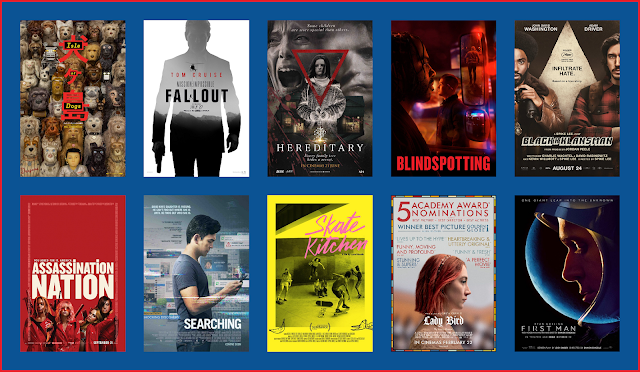Midsommar Review
(A version of this article originally appeared on kernelnow.com / mynewslike.com)
It was around the summer solstice last year that director Ari Aster announced himself onto the cinematic stage with Hereditary, arguably the greatest horror film of the year and in the conversation for the genre’s most impressive modern entries. It’s thus somewhat fitting that his follow-up be a deeply-unnerving exploration of mid-summer’s most earthen celebrations.
Midsommar follows a group of American students (Jack Reynor, William Jackson Harper, Will Poulter and Florence Pugh) as they travel to Sweden under the invitation of their classmate Pelle (Vilhelm Blomgren) to experience a “crazy, nine-day festival” under the guise of retreat and study. Their idyllic and vice-laden getaway gradually becomes a gala of doom as their hosts unveil their less-than orthodox rituals.
 |
| Triangle block in a circle hole: Dani (Florence Pugh), Pelle (Vilhelm Blomgren) and Christian (Jack Reynore) (l-r) (source: A24) |
In many ways, the horror of Aster’s last outing had a very European feel – graphic, practical and organic; it almost seems like destiny that he would find himself in the most Euro-centric location of Scandinavia as he again utilizes that sensibility. His editing choices alongside the cinematography of regular collaborator Pawel Pogorzelski deliberately disturb the viewer from immersing themselves in the film, and the two siphon every drop of continental dread out of the story. Whilst undoubtedly an amplification of this reality and this part of the world, it is precisely because it looks so real that the visuals unsettle so much – though there is an eccentric use of visual effects and colour, the cliff-faces and barn murals appear so ancient and natural that the surroundings feel completely inescapable. The line between charm and harm is further blurred as the graceful villagers become sinister with a frightening dispassion, the same smiles present for innocent dances as for ritual sacrifice.
 |
| Standing on ceremony: one of the unhinged rituals found in the film's festival (source: A24) |
Of course, there are a great many reasons why films so surreal and drawn out are a modern rarity –even in their heyday, many of those films just mentioned were firmly niche. Nobly unafraid of this fact (and as was true of Hereditary), Aster’s aim is less to shock or horrify and more to unnerve and linger; thus, for many, Midsommar will feel too long a watch. It’s not escapist cinema at all – in fact, the film will stay with the viewer long afterwards. The visual presentation may open itself to mockery too easily, and it’s a looming fact that the curious style may not age entirely well.
 |
| Sticking together: Dani finds herself pulled deeper into this eerie world (source: A24) |



Comments
Post a Comment